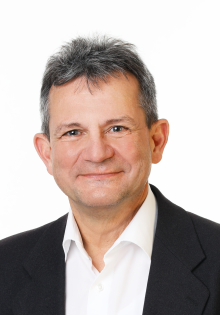Automotive Lightweight Design
The chair of Automotive Lightweight Design develops lightweight construction concepts especially by using high strength steels, hybrid-constructions (e.g. steel- CFRP) and also lightweight materials (e.g. aluminum). For assembly and material verification static, cyclic and dynamical tests can be performed.
Read more on the page of the research group.
Goals
Because of limited natural resources and future challenges of global climate protection, the economical use of raw materials and reduction of greenhouse gas emissions will require intensive efforts. The passenger and freight traffic can distinctly contribute to those efforts by reducing the fuel consumption and thus saving CO2 emissions. An important step to lower the fuel consumption of cars is to reduce their weight.
Accordingly, our research focuses on innovative solutions for automotive lightweight construction. It includes, for example, the lightweight steel design with hot- formed and ultra high strength steels. These steels offer, due to their ultra-high strength, an excellent crash behavior despite of a reduced sheet thickness and thus a reduced weight. Another current topic for future vehicle generations are smart components, which may be hard, soft, brittle or ductile according to the specific requirements in different areas. Furthermore, an important focus lies on hybrid components which consist of material combinations, such as metal/carbon fiber compounds in order to symbiotically exploit the advantages of the different materials.
Methodical competence
- Quasistatic tensile-, bending-, compression tests (Fmax ±250kN)
- Cyclic tests (e. g. fatigue)
- Flexible test stands and component geometries
- Component crash tests (vmax=25m/s, Emax=32kJ)
- High speed testing (e. g. high speed tensile tests, high speed cupping tests)
- Cupping and bulge tests (also with temperature)
- Local 2D and 3D deformation and elongation alaysis (GOM Pontos, Aramis, up to 100 kHz)
- Analysis of complex motion sequences, modes of vibration, relative displacements
- Metallographical material testing (strucural analysis with a reflected light microscope / hardness tests)
- Material- und component simulations (JmatPro, ThermoCalc, LSDyna, Abaqus, Hyperworks)
Topics
- High-strength metallic materials
Due to the increased environmental and safety requirements of new car body developments a trend to increasing strengths of metallic materials can be observed. In comparison to traditional cold-working steels new materials such as press hardened steels or high-strength aluminum alloys are utilized in new generations of vehicles. LiA research work concentrates on the metallurgical aspects as well as processing technologies for these materials. A particular focus is on the generation of automotive parts with gradient structures, where the properties can be locally adapted by e.g. special heat treatments.
- Fiber reinforced materials
Fiber reinforced plastics such as CFRP have the highest specific strength and stiffness values of all construction materials. However, especially for large volume production the high costs limit the application of these materials. Therefore, a important focus of our research lies on the development of novel and suitable mass production technologies.
- Hybrid materials
Loads and stresses of real structures are usually not homogeneous. An optimal lightweight structure thus should be locally adapted to the respective loading, which can be achieved for example by varying the component properties in different areas. Such a variation of properties can be realized by a partial reinforcement of components with high strength materials like CFRP. Research on the development, manufacturing and usage of such high-performance hybrid materials complete the research portfolio of the chair of Automotive Lightweight Construction.

